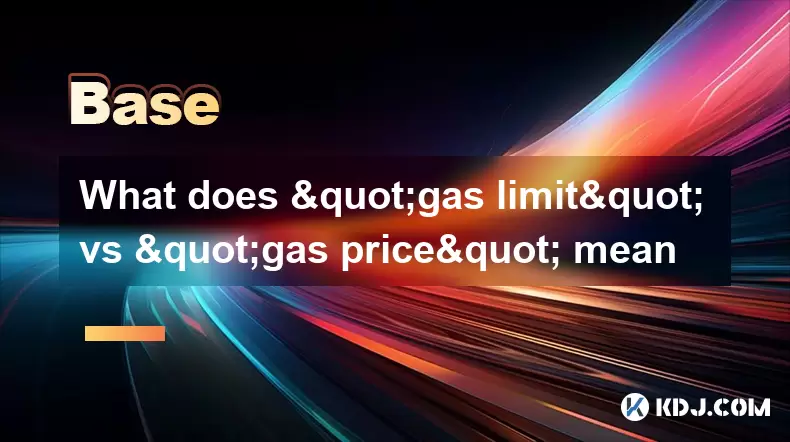-
 Bitcoin
Bitcoin $118,698.3676
0.16% -
 Ethereum
Ethereum $3,428.4877
5.97% -
 XRP
XRP $3.2496
9.52% -
 Tether USDt
Tether USDt $1.0002
0.00% -
 BNB
BNB $725.6930
4.36% -
 Solana
Solana $174.8923
4.52% -
 USDC
USDC $0.9997
-0.02% -
 Dogecoin
Dogecoin $0.2139
6.02% -
 TRON
TRON $0.3155
4.62% -
 Cardano
Cardano $0.8045
7.12% -
 Hyperliquid
Hyperliquid $46.6582
-1.72% -
 Stellar
Stellar $0.4676
0.80% -
 Sui
Sui $4.0143
0.38% -
 Chainlink
Chainlink $17.1546
2.97% -
 Hedera
Hedera $0.2458
3.27% -
 Bitcoin Cash
Bitcoin Cash $496.5967
-0.06% -
 Avalanche
Avalanche $22.8813
3.13% -
 Shiba Inu
Shiba Inu $0.0...01439
3.42% -
 UNUS SED LEO
UNUS SED LEO $8.8389
0.42% -
 Toncoin
Toncoin $3.2113
2.82% -
 Litecoin
Litecoin $101.2646
4.24% -
 Polkadot
Polkadot $4.2262
2.32% -
 Monero
Monero $340.4295
2.92% -
 Pepe
Pepe $0.0...01365
2.92% -
 Uniswap
Uniswap $8.9702
-2.78% -
 Bitget Token
Bitget Token $4.7675
2.00% -
 Dai
Dai $0.9998
-0.02% -
 Ethena USDe
Ethena USDe $1.0003
-0.04% -
 Aave
Aave $324.6394
-2.11% -
 Bittensor
Bittensor $433.6051
-0.88%
Are crypto gains taxable
Crypto gains are taxable in most countries, with events like selling, trading, or spending crypto triggering capital gains or income tax.
Jul 15, 2025 at 03:15 am

Understanding the Tax Implications of Cryptocurrency Gains
Cryptocurrency has gained widespread adoption, but many investors overlook the tax obligations associated with digital asset transactions. Whether you're trading, investing, or using crypto for everyday purchases, understanding whether and how your gains are taxed is crucial. The short answer is yes—crypto gains are taxable in most jurisdictions, including the United States, the United Kingdom, Canada, and Australia.
Taxable events include selling crypto for fiat currency, exchanging one cryptocurrency for another, and using crypto to purchase goods or services.
Each country has its own set of rules, so it's essential to understand the specific regulations that apply to your location.
What Constitutes a Taxable Event?
Not every interaction with cryptocurrency triggers a tax liability. However, several common actions are considered taxable:
- Selling cryptocurrency for fiat currency (e.g., USD, EUR) – This is the most straightforward taxable event. If the sale price is higher than your cost basis, you realize a capital gain.
- Trading one cryptocurrency for another (e.g., BTC to ETH) – Even though no fiat is involved, this exchange is treated as a disposal and may trigger capital gains tax.
- Using crypto to buy goods or services – Spending crypto is treated similarly to selling it. You must calculate any gain or loss based on the value at the time of the transaction.
- Mining or staking rewards – These are generally considered income and taxed at their fair market value when received.
If you simply hold crypto without engaging in any of these activities, there’s typically no immediate tax consequence.
How Are Crypto Gains Classified for Tax Purposes?
Governments classify cryptocurrency differently, but in most cases, it's treated as property rather than currency. This classification significantly impacts how gains are calculated and taxed.
In the U.S., the IRS treats virtual currencies as property, meaning capital gains and losses are calculated using cost basis methods like FIFO (First In, First Out) or specific identification.
Capital gains can be either short-term or long-term:
- Short-term gains – Apply if you held the asset for one year or less. These are taxed at your ordinary income tax rate.
- Long-term gains – Apply if you held the asset for more than one year. These are taxed at lower rates, depending on your income level.
Other countries follow similar principles, though the holding period and tax brackets may vary.
Reporting Crypto Transactions to Tax Authorities
Accurate record-keeping is vital for reporting crypto transactions correctly. Tax authorities require detailed documentation to verify gains and losses.
You should track the following for each transaction:
- Date of acquisition
- Purchase price in local currency
- Date of disposal
- Sale or exchange price in local currency
- Description of the asset (e.g., Bitcoin, Ethereum)
Some platforms provide tax reports or integrate with third-party tools like CoinTracking, Koinly, or Crypto.com Tax to help streamline the process.
Failure to report crypto gains can lead to penalties, audits, or even criminal charges in extreme cases.
Tax Treatment Across Different Countries
While many countries agree that crypto gains are taxable, the specifics differ significantly.
In the United States, the IRS requires taxpayers to answer a question about virtual currency on Form 1040. Detailed reporting is required for all taxable events, and exchanges are increasingly sharing user data with the IRS.
In the United Kingdom, HMRC treats crypto as an asset subject to Capital Gains Tax. There is an annual exempt amount, and individuals must calculate gains using specific pooling methods.
In Canada, the Canada Revenue Agency (CRA) considers crypto as a commodity. Dispositions trigger capital gains or business income depending on the taxpayer's activity level.
In Australia, the Australian Taxation Office (ATO) also treats crypto as property. Each disposal must be reported, and records must be kept for at least five years.
These differences highlight the importance of consulting a local tax professional familiar with cryptocurrency regulations.
Frequently Asked Questions (FAQs)
Q: Do I owe taxes if I only bought crypto but didn’t sell it?
A: No, purchasing or holding crypto alone does not trigger a taxable event. Taxes apply when you dispose of the asset through sale, trade, or use.
Q: What happens if I lose money on my crypto investments?
A: Losses can often be used to offset capital gains. Some jurisdictions allow you to carry forward losses to reduce future tax liabilities.
Q: How do I calculate the cost basis for crypto acquired through multiple purchases?
A: Methods such as FIFO, LIFO (Last In, First Out), or specific identification may be used, depending on your jurisdiction. Choose a method and apply it consistently.
Q: Are NFT transactions also taxable?
A: Yes, buying, selling, or trading NFTs can trigger capital gains or income tax depending on the nature of the transaction and how the NFT was obtained.
Disclaimer:info@kdj.com
The information provided is not trading advice. kdj.com does not assume any responsibility for any investments made based on the information provided in this article. Cryptocurrencies are highly volatile and it is highly recommended that you invest with caution after thorough research!
If you believe that the content used on this website infringes your copyright, please contact us immediately (info@kdj.com) and we will delete it promptly.
- Shiba Inu, AI Tokens, and the Meme Coin Mania: What's Next?
- 2025-07-18 03:50:12
- XRP's Wild Ride: Chasing ATHs and Cloud Mining Dreams in the Crypto Jungle
- 2025-07-18 02:30:13
- MoonBull, Crypto Gains, and MEW Volume: What's Buzzing in the Meme Coin World?
- 2025-07-18 02:35:12
- Crypto Market, Bull Market, and Policy: Navigating Trump's 'Crypto Week' Rollercoaster
- 2025-07-18 01:50:12
- Winning Design: Nine-Year-Old's Art Becomes a Chocolate Coin!
- 2025-07-18 01:10:12
- Penguin Power, BlockDAG Boldness, and Uniswap's Upswing: Decoding Crypto's Latest Moves
- 2025-07-18 01:50:12
Related knowledge

What is the Bitcoin dominance index
Jul 12,2025 at 10:35pm
Understanding the Bitcoin Dominance IndexThe Bitcoin Dominance Index, often abbreviated as BTC.D, is a metric used to measure Bitcoin's market capital...

What is the Bitcoin dominance index
Jul 11,2025 at 04:29am
What is the Bitcoin Dominance Index?The Bitcoin Dominance Index is a metric used to gauge Bitcoin's market capitalization relative to the total market...

Can crypto be a hedge against inflation
Jul 14,2025 at 12:21am
Understanding the Concept of Hedging Against InflationInflation refers to the general increase in prices and fall in the purchasing value of money ove...

Can crypto be a hedge against inflation
Jul 12,2025 at 12:07pm
Understanding the Role of Blockchain in Decentralized Finance (DeFi)Blockchain technology serves as the backbone of decentralized finance, offering a ...

What are account abstraction wallets
Jul 13,2025 at 01:43am
Understanding the Concept of Account AbstractionAccount abstraction is a term frequently used in the Ethereum ecosystem, particularly within discussio...

What does "gas limit" vs "gas price" mean
Jul 13,2025 at 04:00am
Understanding the Basics of Gas in Blockchain TransactionsIn the Ethereum and other EVM-compatible blockchains, every transaction requires computation...

What is the Bitcoin dominance index
Jul 12,2025 at 10:35pm
Understanding the Bitcoin Dominance IndexThe Bitcoin Dominance Index, often abbreviated as BTC.D, is a metric used to measure Bitcoin's market capital...

What is the Bitcoin dominance index
Jul 11,2025 at 04:29am
What is the Bitcoin Dominance Index?The Bitcoin Dominance Index is a metric used to gauge Bitcoin's market capitalization relative to the total market...

Can crypto be a hedge against inflation
Jul 14,2025 at 12:21am
Understanding the Concept of Hedging Against InflationInflation refers to the general increase in prices and fall in the purchasing value of money ove...

Can crypto be a hedge against inflation
Jul 12,2025 at 12:07pm
Understanding the Role of Blockchain in Decentralized Finance (DeFi)Blockchain technology serves as the backbone of decentralized finance, offering a ...

What are account abstraction wallets
Jul 13,2025 at 01:43am
Understanding the Concept of Account AbstractionAccount abstraction is a term frequently used in the Ethereum ecosystem, particularly within discussio...

What does "gas limit" vs "gas price" mean
Jul 13,2025 at 04:00am
Understanding the Basics of Gas in Blockchain TransactionsIn the Ethereum and other EVM-compatible blockchains, every transaction requires computation...
See all articles

























































































